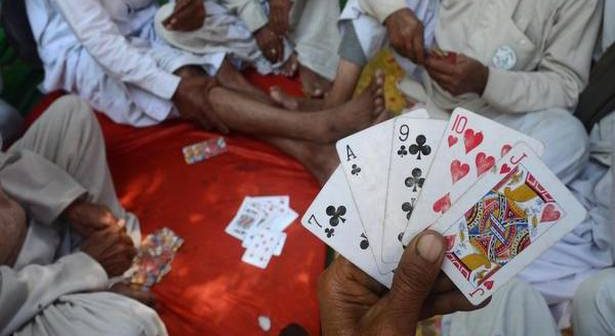Diwali, the festival of lights, is celebrated across India with a range of customs and traditions, one of which includes gambling. This tradition, rooted in mythology, is believed to bring prosperity and good luck for the year ahead. According to Hindu legend, the goddess Parvati played dice with her husband, Lord Shiva, on Diwali night. It’s said that she declared anyone who gambled during Diwali would have good fortune. This tale has fueled the practice of card games and betting, making it a staple of Diwali celebrations.
The Scale of Gambling in India
Today, gambling during Diwali isn’t limited to family gatherings or small stakes. India’s gambling market—encompassing both offline and online forms—has grown significantly. The estimated total market for online gambling alone is around $150 billion, driven largely by the rise of digital access, especially among the younger generation who are more familiar with internet-based platforms. Offline gambling, although harder to quantify, also remains prevalent, particularly in metropolitan cities where card games and private gatherings are common.
A staggering 370 million Indians reportedly engage in betting during major events like Diwali, with approximately 140 million regular bettors. Offline gatherings still dominate Diwali gambling, often taking place in private homes or exclusive clubs, while online platforms provide accessibility for users across the country. Popular games include Teen Patti, poker, and Andar Bahar, with cricket betting on tournaments like the Indian Premier League (IPL) gaining a large share online.
Online Gambling’s Growth and Risks
Online gambling has seen a surge due to the proliferation of smartphones and increased internet accessibility. Many online casinos and betting sites now specifically cater to Indian users, offering easy access through apps and payment methods such as UPI and digital wallets. This market has grown by approximately 20% annually, with online sports betting, especially on cricket, becoming one of the most popular online gambling activities.
However, the accessibility and allure of high returns in online gambling come with significant risks. Gambling addiction has become a pressing issue in India, with Diwali acting as a peak period for betting. Families are increasingly concerned about the financial toll this addiction can take, as continuous losses can lead to significant debt. The lack of regulation also complicates matters, as many online platforms operate in legal gray areas, leaving users with limited avenues for redress in case of fraud or addiction issues.
Financial and Social Impacts
Excessive gambling often leads to severe financial stress, affecting family welfare and mental health. Diwali, with its association to prosperity, can ironically become a time when families suffer from the burden of gambling debts. Mental health professionals and social workers warn of the repercussions, pointing out that gambling addiction often escalates in festival seasons, especially due to cultural pressures to participate and “win” for good luck. Many gamblers also face stigma, making it challenging to seek help.
A Need for Responsible Gambling and Awareness
While Diwali gambling is an age-old tradition, modern India is witnessing its expansion into a much larger and riskier activity. Experts suggest the need for awareness campaigns around responsible gambling, especially online, where users are often younger and more susceptible to addiction. Online gambling platforms could also promote self-limiting features or transparency about the risks involved, while policymakers push for better regulation to safeguard users.
As India continues to embrace technology, balancing tradition with the challenges of addiction becomes essential to preserving the spirit of Diwali without compromising on personal and financial well-being.





